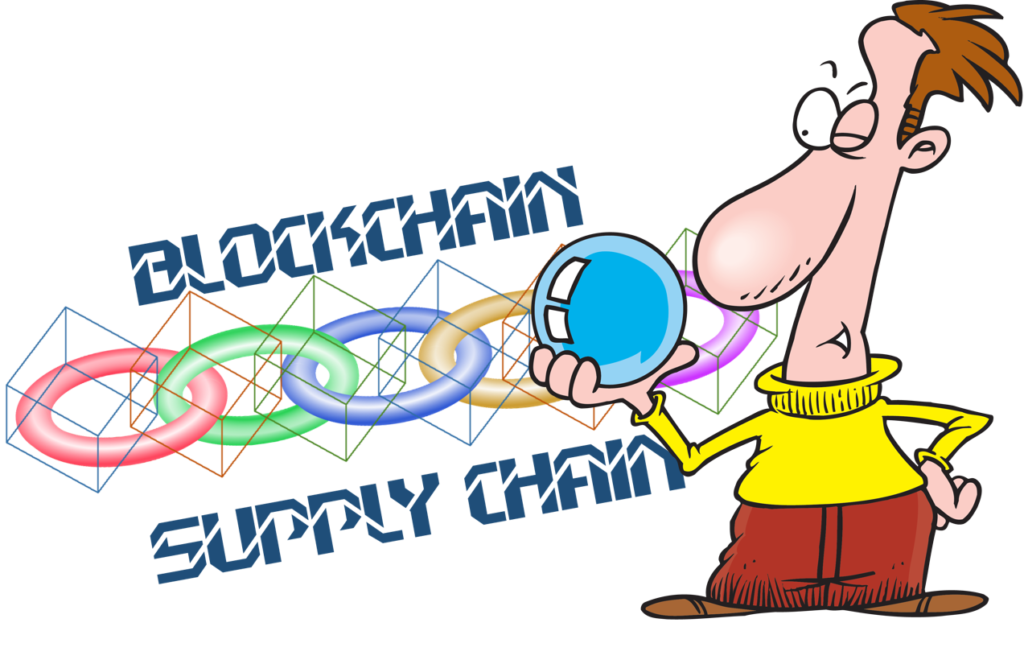“The hype surrounding Blockchain — also known as Distributed Ledger Technology — is in overdrive,” writes Andrew Sohn (@Molsonix). “Many pundits liken the potential impact of Blockchain to that of the Internet. Investments in Blockchain startups topped $1.4B in 2016 and new industry consortia seem to pop up every week.”[1] Despite all the hype, Sohn notes widespread use of the technology outside of the financial sector has not yet occurred. He thinks that is a mistake because it has multiple uses. He explains:
“Defining Blockchain in business terms is relatively simple, but it masks the complex science, math, operations coordination and infrastructure to make it work. Blockchain implements a database that can be used by multiple entities while ensuring real-time data visibility, immutability, privacy, security, availability and other critical business requirements. Pretty much any information can be stored in the Blockchain, from data that represent value, registration information or even electronic documents or pictures. Once written into the Blockchain, the data can’t be changed and authenticity can be verified. Also, the Blockchain can implement smart contracts, which are programmatic actions triggered by events written to the chain. This is a real game-changer.”
Sohn believes blockchain technology will have widespread business impact; but, many analysts are specifically beginning to focus on how the technology will affect future supply chain operations.
Blockchain and the Supply Chain
Tom Kroswek, Group Director of Supply Chain Excellence at Ryder, notes, “Blockchain isn’t new. It was created from a concept over 25 years ago.”[2] Nevertheless, he is one of the pundits who believes the future of the supply chain is inextricably tied to blockchain technology. “For supply chains,” he writes, “the immediate benefits of blockchain include an expanded level of security, visibility, and traceability. With many moving parts in a supply chain from the products to people, blockchain has the ability to allow multiple parties to transfer and store data in a space that is permanent and easily accessible. This simplifies paper-heavy, disparate, expensive, and logistically complex data systems.” Madhusudhan Ranjanghatmuralidhar, an Associate General Manager at HCL Technologies, explains that complex, extended supply chains have been in need of something like distributed ledger technology for a long time. “Supply chain pathways are now more complex,” he writes, “often hindered in efficiency by defunct systems and processes — reducing accessibility and transparency.”[3] He continues:
“In fact, a giant centralized system designed to manage the flow of goods and data, can no longer support the demands of today’s complicated and geographically scattered supply cycles. Further, the absence of an open and trustworthy information chain — caused by multiple issues such as trust, technology and legacy practices — exacerbates the situation. There are bottlenecks and gaps, disjointed insights and consistent trust erosion. The landscape is therefore, largely disconnected driving all-round data and visibility dissonance. Given the above scenario, Blockchain technology could fundamentally address these supply chain challenges.”
Kirsten Lubritz (@KirstenLubritz), a senior supply chain solution specialist at SAP, agrees. “The benefits of this are obvious,” she writes. “Companies and individuals can forge new business relationships without actually knowing one another — as all transactions are clearly visible and easy to monitor. While many supply chain organizations have remained in the piloting stage of blockchain adoption, the time has come for them to finally begin embracing this transformative technology.”[4] She asserts there are five benefits of distributed ledger technology that businesses simply cannot ignore. They are:
- Transparency: “As documents are separated from the physical flow of the product and taken out of the hands of supply chain parties into a ‘neutral’ zone, the supply chain reveals its true origin and touchpoints. This increases trust and helps eliminate the bias found in today’s supply chains. According to a 2014 Deloitte University Press publication, ‘supply chain transparency is critical for managing rising levels of risk in an environment where corporate supply chain practices are attracting increasing legal, regulatory, and consumer scrutiny.'”
- Scalability: “Normally, a rising number of supply chain participants would increase the complexity of supply chain management. That’s no longer the case. With blockchain technology, you can add any number of participants and touchpoints, and managing the supply chain will be as simple as ever.”
- Growth: “Companies in supply chain that adopt blockchain at an early stage can generate significant competitive advantages over other players. By gaining greater insight and visibility into your operations, your organization will be better prepared to deal with unforeseen challenges and provide superior consumer experiences.”
- Security: “Using blockchain as a shared ledger with clear rules could potentially eliminate audits required to document adherence to internal and external quality standards. Digitizing your assets with blockchain could also help your organization protect itself from theft.”
- Innovation: “Opportunities abound to create new specialized uses for technology as a result of the decentralized architecture of blockchain. There’s no limit to what your organization can enhance, whether it’s your production processes or delivery capabilities.”
Elba Pareja-Gallagher, Director of Finance Global B2C Strategy at UPS, insists, “Blockchain has the potential to disrupt more facets of your life than perhaps any other technology.”[5] She explains, “When I earned my supply chain certification, I learned the four stages of supply chain management evolution. Supply chains evolve from inefficient and wasteful to fully optimized. That optimized fourth stage, known as the extended enterprise, occurs when a company integrates its internal network with the internal networks of supply chain partners. This improves efficiency and product and service quality since they are sharing information in real time to achieve each other’s goals simultaneously. Secure blockchain, a digital ledger of business transactions between supply chain partners, can enable the extended enterprise.”
Blockchain Implementation is not Easy but is Worth the Effort
For a distributed ledger system to work, every participant must agree to a set of rules and abide by them. That sounds easier than it really is. Stefan Thomas (@justmoon), who helped introduce the world to bitcoin, writes, “Blockchains are a pain to work with. Everyone who has done it knows what I’m talking about. The fact that blockchain has been largely ignored by major tech companies and embraced by the financial industry is partly because that industry has a relatively high tolerance for arcane and complex systems.”[6] He continues, “At the root of the difficulty in updating blockchains is the need to maintain shared state. In any protocol, everyone has to act the same. But in a blockchain, … everyone has to think the same. Everyone’s memory (also known as ‘state’ in computer science terms) has to be exactly the same and evolve according to the same rules. Shared state adds tremendous complexity and that has a big impact on developers.”
“Just like the Internet,” Sohn writes, “the value of the Blockchain technology will increase as more organizations participate and standards are widely adopted. There are also scaleability challenges and performance issues to be resolved. Blockchain implementations that involve monetary or other value transfer, as well as those that work across country borders, face significant regulatory issues.” Nevertheless, Sohn insists, “Blockchain will soon be a competitive advantage.” Kroswek agrees. “From enhanced transparency and greater scalability to better security and increased innovation,” he writes, “blockchain can strengthen your supply chain.”
Summary
Pareja-Gallagher concludes, “Blockchain is another disruptor with winners and losers. If your company has not started learning and planning for this technology, it’s still early enough in the game to catch up and create growth strategies. I encourage everyone to become literate in blockchain. Bigger than the internet, it is going to revolutionize everything.” Lubritz adds, “Blockchain is a revolutionary technology that can transform many existing traditional processes into more secure, transparent, and collaborative systems. With the myriad ways it can benefit your enterprise, it’s high time to begin making blockchain a part of your supply chain organization’s future today.”
Footnotes
[1] Andrew Sohn, “Why Your Company Should Get Started with Blockchain,” Dataversity, 3 March 2017.
[2] Tom Kroswek, “Blockchain: The future of supply chain operations,” Exchange, 14 March 2017.
[3] Madhusudhan Ranjanghatmuralidhar, “Blockchain Technology: Enabling Supply Chain Transparency through Greater Visibility,” HCL Technologies Blog, 3 February 2017.
[4] Kirsten Lubritz, “Why Blockchain Must Be Part Of Supply Chain’s Future,” D!gitalist, 22 February 2017.
[5] Elba Pareja-Gallagher, “Why Blockchain Matters,” Longitudes, 5 April 2017.
[6] Stefan Thomas, “The Subtle Tyranny of Blockchain,” Medium, 18 August 2016.





